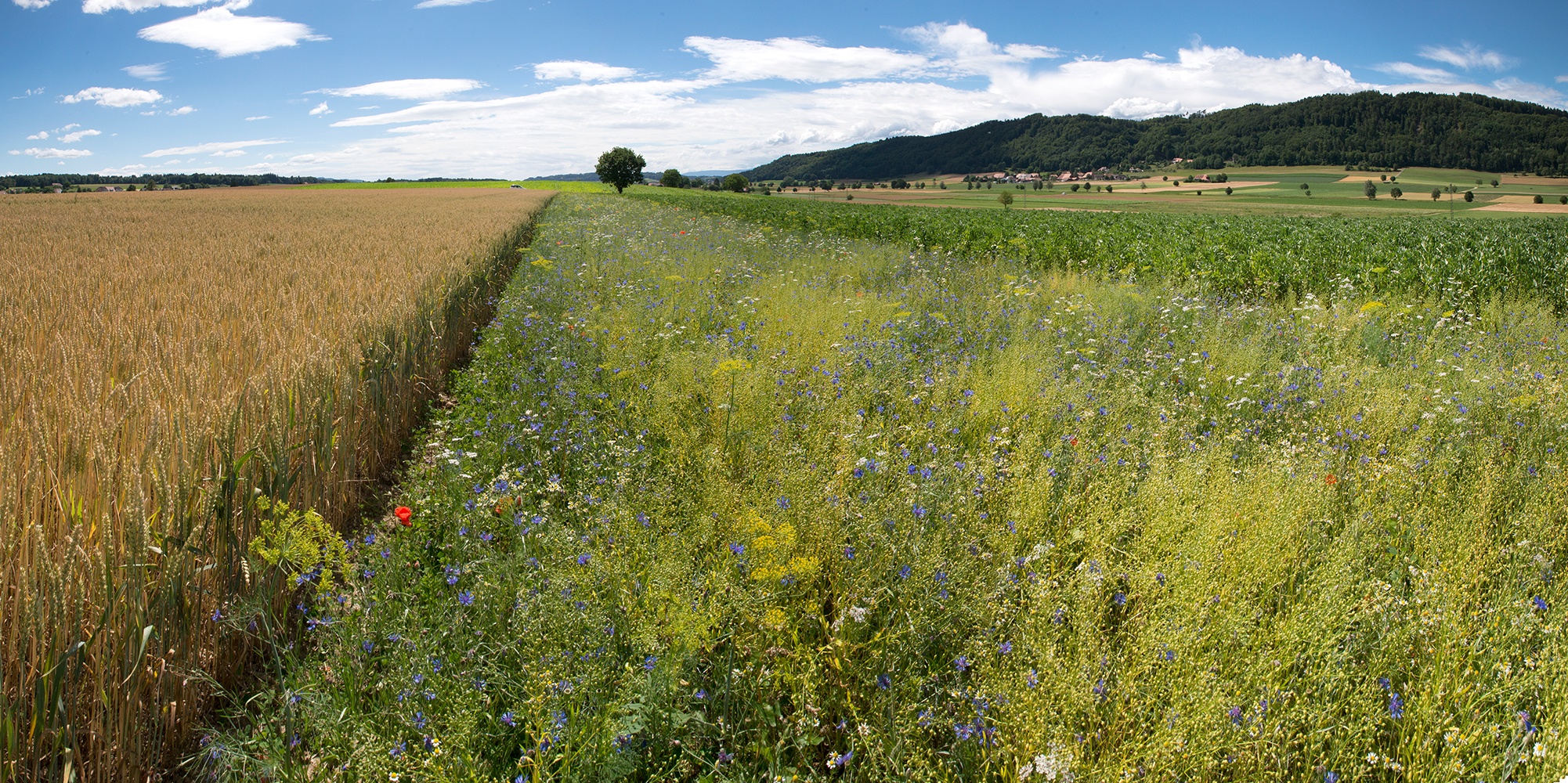Lower in-Kind Yields from Forgoing the Use of Plant-Protection Products in Arable Crops
Photo: Agroscope,
Gabriela Brändle
Agroscope Science No. 125, 1-31, 2021
A survey of 18 experts from the whole of Switzerland shows what effects a complete or partial avoidance of plant-protection products would have on in-kind yields in arable production.
Various studies show that forgoing the use of plant-protection products (PPPs) in arable production generally goes hand-in-hand with yield losses. However, losses can vary greatly, depending on the crop, cultivation method and regional pest and disease pressure.
For Switzerland, little data is available on how forgoing PPP use would affect in-kind yields in arable production. However, such information is necessary for estimating the economic consequences for the Swiss agricultural sector of forgoing PPP use.
Yields decrease the most for zero PPP use, the least for zero herbicide use
With the aid of a two-step qualitative online survey, 18 plant-protection experts from the whole of Switzerland were asked what effects could be expected from the measures to be promoted with direct payments according to Parliamentary Initiative 19.475 – ‘Reducing the Risk of Pesticide Use’ (Pa. Iv.):
- Arable farming without insecticides, fungicides or stalk shorteners;
- Arable farming without herbicides;
- Arable farming avoiding all PPPs.
The experts see the greatest yield losses with the avoidance of all PPPs. Losses would be lowest if herbicide use alone were avoided.
Major differences between crops
The surveys show that the expected yield losses vary greatly depending on the crop. Thus, the total avoidance of PPPs reduces sugar beet yields by 47%, but sunflowers, currently grown non-extensively, by around just 16% (compared to the average reference yield levels according to the Farm Accountancy Data Network and the gross-margin catalogue).
With the avoidance of insecticides, fungicides and stalk shorteners, in-kind yield losses vary between 10% for sunflowers to just under 38% for sugar beet. With oilseed rape, the avoidance of insecticides would result in yields up to 43% lower. For potatoes, yields would fall by around 29%, although, according to the current interpretation of the parliamentary initiative, certain preparations would have limited authorisation.
With the avoidance of herbicide use in arable crops, yield losses of 6 to 21% could be expected. Sugar beet (21% reduction) and legumes such as field beans and protein peas (16% reduction) would be most affected. For oilseed rape, wheat and barley, yields were an average 8 to 9% lower.
Resistant varieties and beneficial-insect strips as remedies
The experts consider various management methods to be an effective means of mitigating yield losses. Especially high hopes were expressed for the combined avoidance of insecticides, fungicides and stalk shorteners as well as the use of resistant varieties and beneficial-insect strips.
Conclusions
- In a two-step qualitative process, Swiss plant-protection experts were asked how forgoing the use of plant-protection products (PPPs) affects yields in kind. They expect losses to vary according to whether avoidance of use is complete or partial, and according to crop.
- The greatest in-kind yield reductions in arable production are to be expected for total avoidance of all PPPs (16–47%).
- With the avoidance of insecticides, fungicides and stalk shorteners, yield losses vary between 10–43%.
- According to estimates, the reduction in yields resulting from the avoidance of herbicides alone is the lowest, at 6–20%.
- According to the group of experts, the planting of beneficial-insect strips and the use of resistant varieties are promising measures for mitigating losses.
Bibliographical reference
Lower in-Kind Yields from Forgoing the Use of Plant-Protection Products in Arable Crops



